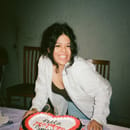An aspect of my personality is my deep passion for sports. Engage me in a conversation about sports, and you’ll have my full attention. I’ve even written a few articles on topics in athletics. However, recently, my interest has shifted towards the business side of sports.
In my free time, I’ve been immersing myself in the world of Formula 1, expanding my knowledge beyond what I knew previously. Though I typically enjoy a diverse range of sports, from soccer to basketball and beyond, lately, my focus has primarily been on Formula 1, with occasional updates on soccer to stay connected with my favorite players. What currently fascinates me are the detailed business strategies and dynamics that underlie the world of sports.
To cut to the chase, I stumbled upon videos and articles discussing beauty brands teaming up with motorsports. This caught my attention because I wondered why it isn’t a bigger topic of discussion. It’s actually quite significant, and here’s why.
The well-known affordable beauty brand e.l.f recently announced a major move: sponsoring Katherine Legge, a British professional racer and record-breaker, for the Indianapolis Motor Speedway, home of the Indy 500. Why is this such a significant move? It marks e.l.f to be the first beauty brand to enter motorsports sponsorship. For the 2024 race, Legge’s vehicle will proudly and fully display the e.l.f Cosmetics logo alongside a vibrant pink and red wrap, making a bold statement on the track. This sponsorship goes beyond business. It represents empowerment and challenges traditional gender boundaries by featuring a feminine brand in a typically masculine arena. It’s interesting to note that beauty brands have shown interest in motorsports before.
Recently, there’s been a notable increase in women’s interest in racing, as seen in last year’s Formula 1 viewership, showing 40% female viewers. Brands aimed at women are targeting women’s racing. Take 19-year-old Bianca Bustamante, a Filipina F1 Academy driver, who raced at the Macau Grand Prix with sponsorship from beauty brand Anastasia Beverly Hills, making her the brand’s first athlete ambassador. Then there’s beauty brand Charlotte Tilbury, who sponsored an entire car for F1 Academy, driven by the French 18-year-old Lola Lovinfosse. This partnership is historic, as Charlotte Tilbury became the first female-founded brand to sponsor the 2024 F1 Academy, aimed at supporting and developing female drivers in racing competitions. It’s also the makeup brand’s first global sports sponsorship.
The e.l.f sponsorship with Katherine Legge stands out because it’s different from the Anastasia Beverly Hills and Charlotte Tilbury sponsorships, which are in feeder series.
Now, what does “feeder series” mean? Simply put, feeder series are lower-tier racing championships designed to train and prepare drivers for higher levels of competition. They’re like stepping stones for drivers aiming to climb the ranks in motorsports. For example, the F1 Academy is a junior series for Formula 1, and Bianca Bustamante raced in an F4 series at the Macau race. Now, with Katherine Legge racing in a full e.l.f wrap car at the Indy 500, she’s competing in one of the biggest races in motorsports. Overall, this sponsorship not only boosts Legge’s career but also breaks barriers for women in racing, showing that they belong on the track just like anyone else.
These partnerships are showing a shift in expectations for women in traditionally male-dominated spaces. They’re proving that femininity and power can coexist in the world of motorsports. It’s exciting to see more brands aimed at women getting involved in motorsports and beyond.
With Scuderia Ferrari and HP recently announcing a long-term sponsorship deal, it raises the question: Who will be the next feminine brand to make a mark in Formula 1? Could it be Rihanna’s Fenty Beauty or Selena Gomez’s Rare Beauty? Maybe Kim Kardashian’s Skims or Luxury brands like Dior? The possibilities are exciting and I, for one, can’t wait to see more women-led businesses take the lead in the sports industry.




